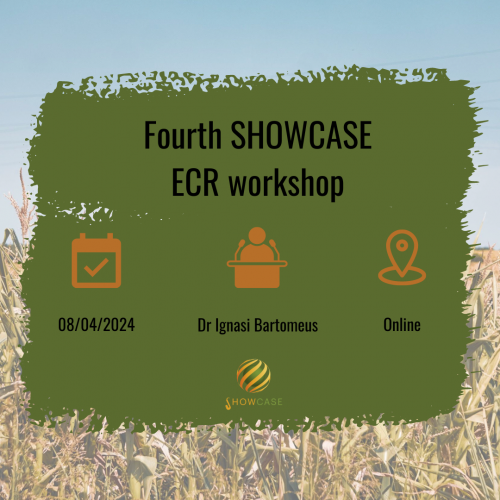On 8 April, SHOWCASE had its fourth workshop for Early Career Researchers (ECRs) led by Dr. Ignasi Bartomeus, representing EBD-CSIC (Doñana Biological Station). His research is focused on understanding how different drivers of global change are affecting biodiversity and ecosystems, with an emphasis on pollinators and their functions. With his rich experience in quantitative research methods, during the workshop Ignasi shared insights on data preparation, research design, interpretation and visualisation of results.
When discussing data preparation, he emphasised the importance of keeping one’s data tidy for it to be machine readable and reproducible. He emphasised on the importance of гaving a deeper understanding of the statistical methods the researchers use. The latter issue, he notes, is a common challenge for students, and if solved, will aid researchers to avoid complications with their research later on. On a similar note, Ignasi highlighted the need for researchers to continuously ask questions and make micro-decisions throughout their research to strengthen their data analysis. Regarding the topic of visualisation of results, several visualisation softwares were shared among the participants, such as Inkscape and the Esquisse R package.
The conversation led to the topic of researchers using ChatGPT to do analysis and coding. Ignasi recommended its use and efficiency if researchers already know and understand how to run an analysis or a piece of code. If not, using such AI tools can be “extremely dangerous because sometimes it makes big mistakes or points in the wrong direction and [researchers] won’t be able to see the mistake”.
The workshop finished with Ignasi’s insightful opinion on the future of data collection in the field of biodiversity over the next decade, namely shifting from a focus on quantity to a focus on quality. With advancements in monitoring technologies like camera traps, satellite images, and DNA barcoding, he notes that data will become easier to collect but ensuring its reliability will be the challenge. He highlights the need for standardised protocols to make diverse data sources comparable and for the use of advanced statistical models to efficiently conduct analysis of this data. Igansi foresees that future efforts will centre on decentralising data collection with common protocols to ensure a more detailed and reliable ecological research and monitoring.
Read about previous ECR workshops, led by University of Reading, Wageningen University and University of Natural Resources and Life Sciences Vienna.
